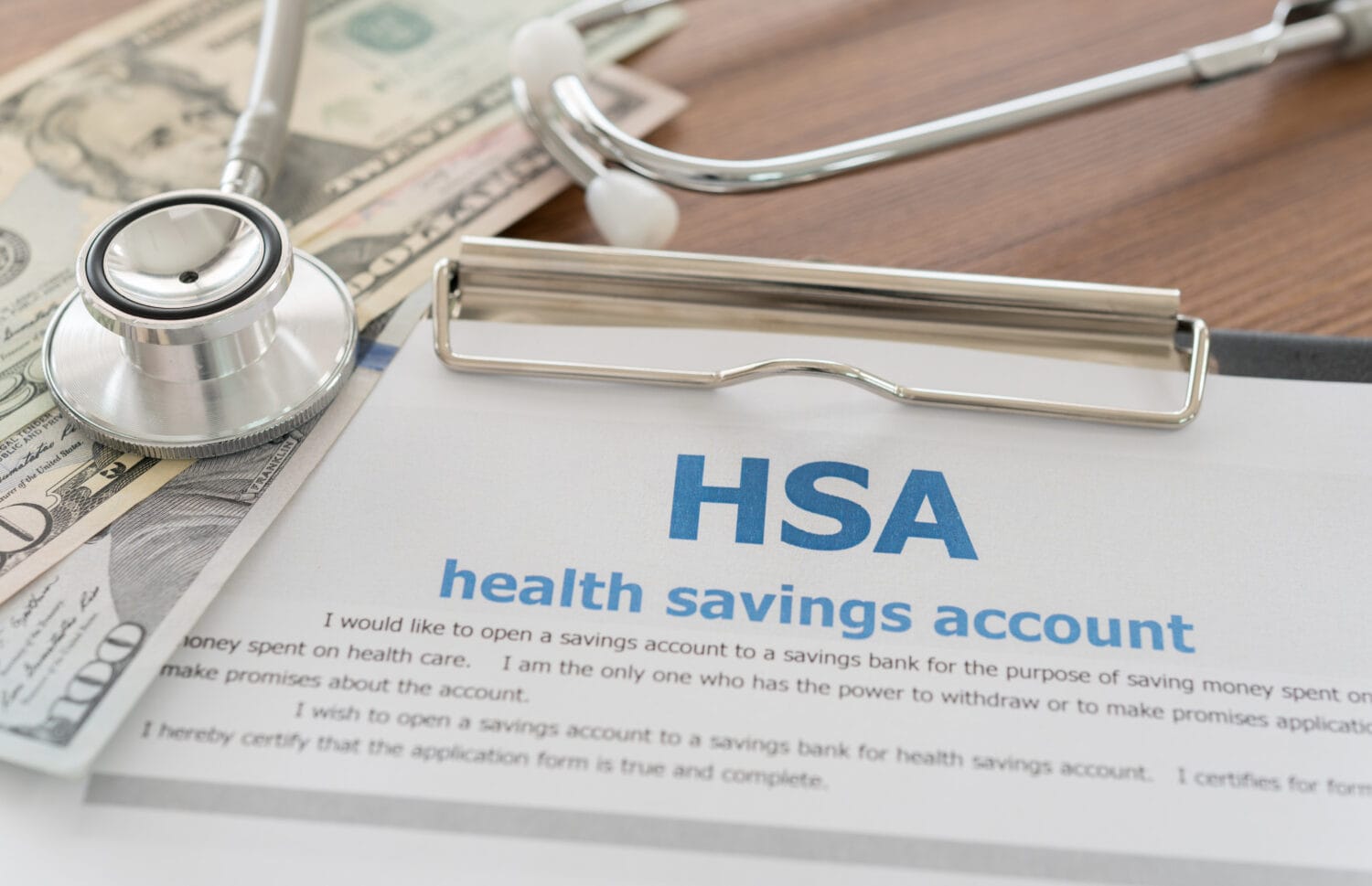
A health savings account (HSA) can not only help you pay for out-of-pocket medical expenses, but it can also serve as an effective retirement savings tool that could complement your individual retirement account (IRA) or 401(k) plan.
That’s because after you turn 65, you can withdraw money from an HSA to cover anything penalty-free, even if it’s not a qualified medical expense.
But there are some facts you should know about an HSA before using it wisely as a retirement savings benefit.
What is an HSA?

An HSA is a savings vehicle that helps you cover qualified medical expenses like doctor visits and medications, as well as dental and vision care.
Here are some key HSA tax benefits.
- Contributions to an HSA are tax-deductible
- Money in an HSA grows tax-free
- Withdraws for qualified medical expenses are tax-free
However, you should know that withdrawing money from an HSA for anything that’s not a qualified medical expense before reaching age 65 would trigger a 20% penalty on the withdrawal. And you’d also pay ordinary income tax on the withdrawal.
After reaching age 65, you can withdraw money from an HSA penalty-free to cover anything. But you’d still owe income taxes on any withdrawal that’s not for a qualified medical expense.
And in order to open an HSA, you’d need to pair it with a high-deductible health plan (HDHP). For 2024, that annual deductible can’t be less than $1,600 for individual coverage or $3,200 for a family coverage.
In addition, you can’t be covered by other insurance plans other than those specifically allowed, and you can’t be claimed as a dependent on someone else’s tax return.
How to open an HSA

If eligible, you may have an HSA option from your employer. But you can also open HSAs through most banks and brokerage firms like Fidelity and Schwab.
Brokerage companies may allow you to invest your HSA dollars in a variety of options like the following.
- Fixed-interest bearing savings vehicles
- Money market funds
- Stocks
- Mutual funds
- Exchange-traded funds (ETFs)
HSA contribution limits

Each year, the IRS sets contribution limits for HSAs. For 2024, the HSA contribution limits are $4,150 for individuals and $8,300 for families.
And similarly to IRAs, HSAs allow for catch-up contributions. So those aged 55 and older can contribute an additional $1,000 in 2024.
But unlike with traditional IRAs, there is no required minimum distribution (RMD) for HSAs. And your HSA funds don’t expire at the end of the calendar year as they would with similar accounts like flexible spending accounts (FSA). This means your investments can sit in your HSA and continue to grow if you don’t need it for a particular year.
Investing in your HSA for retirement

Many financial experts recommend you dedicate an appropriate portion of your HSA money to cash, money-market funds, and other generally low-risk investments to cover immediate qualified medical expenses. After you’ve amassed a large enough liquid pocket of your HSA to cover these expenses, you could consider investing in long-term and growth-focused securities like mutual funds and ETFs.
Some financial advisors also recommend you use money from other savings sources to cover immediate medical expenses if you can. This would allow you to make the most out of your HSA savings and its tax benefits in order to plan for the long-term.
In fact, medical expenses at retirement or closest to retirement may be particularly burdensome.
According to the latest Fidelity Retiree Health Care Cost Estimate, an average retired couple age 65 in 2023 was expected to need an estimated $315,000 saved to cover health care expenses in retirement. For an average individual, that number is $157,500.
So a well-invested HSA could come in handy to cover qualified healthcare expenses in retirement.
In addition, you can use HSA money to cover specific Medicare expenses, including premiums for Part A, Part B, and Part D prescription-drug coverage and Medicare Advantage. However, this doesn’t apply to supplemental (Medigap) policy premiums. But retirees over age 65 with employer-sponsored health coverage can use HSAs to cover their premiums for this coverage.
You can also use an HSA to cover COBRA premiums, health insurance premiums you receive while earning unemployment benefits, and premiums for which you don’t get a deduction or credit.
But keep in mind that once you are enrolled in Medicare, you can’t make additional contributions to your HSA. However, you may continue to use your HSA funds tax-free for qualified medical expenses.
Why we covered this

Healthcare expenses can be a major financial burden for people, especially as they near retirement. An HSA could be an effective tool that could help amplify your retirement savings arsenal. But it’s important to understand key details about HSAs. This is why we produced this overview to help you decide if an HSA fits in your retirement savings strategy.
If you want to learn more about HSAs, check out our regularly-updated HSA main page for the latest coverage.
It’s Your Money, Your Future—Own It (sponsor)
Are you ahead, or behind on retirement? For families with more than $500,000 saved for retirement, finding a financial advisor who puts your interest first can be the difference, and today it’s easier than ever. SmartAsset’s free tool matches you with up to three fiduciary financial advisors who serve your area in minutes. Each advisor has been carefully vetted and must act in your best interests. Start your search now.
If you’ve saved and built a substantial nest egg for you and your family, don’t delay; get started right here and help your retirement dreams become a retirement reality.
Thank you for reading! Have some feedback for us?
Contact the 24/7 Wall St. editorial team.




